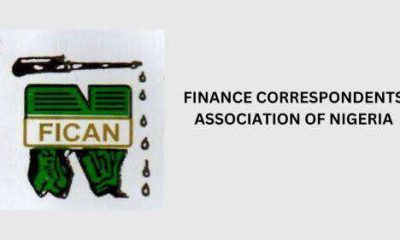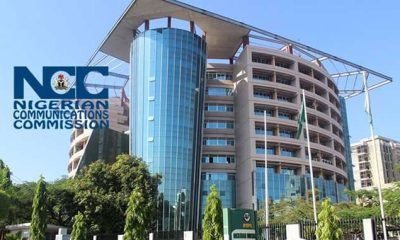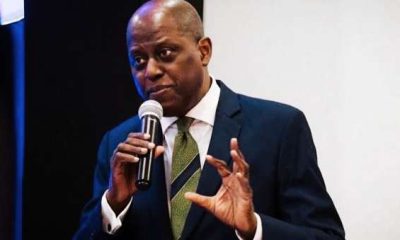Headlines
Worsening poverty, unemployment cast a pall over economy

By JULIUS ALAGBE
With key economic indicators standing at the red zone, from nation debt stock that is currently at N27.39 trillion and projected to grow further, and headline inflation rate 11.4% in addition to unemployment level at 23.1% and huge infrastructure deficit, the macroeconomic narrative continues to be unsavoury for the already battered citizens of which 81 million of them live below $1.25 dollar a day.
The situation is worsened by the fact that the economic growth has continued to be sluggish and the economy under-performing which makes outlook for the year and beyond gloomy. Upsurge in population and the reduction in the 2019 budget to N8.9 trillion from that of 2018 at N9.1 trillion has apparently further shrunk the amount of expenditure by head of 200 million people. Experts believe that what the economy needs to avoid another recession and address poverty and growth is to reflate the economy through more spending.
These, coupled with ballooned debt profile which is attracting significant amount in the budget as service cost, leaves less than desired for capital formation and this is expected to drag down growth potential in 2019. Meanwhile, as the growth trajectory continues to drag, and fiscal centre inability to come up with strong economic policy blueprint, some experts have again registered their disappointment and estimate bleak future for the economy.
In its second half review, Afrinvest said, “We are more concerned about the direction of the economy over the next four years with President Buhari’s continuity”.
One expert who spoke to BusinessHallmark said that “It saddens my heart that the government is trying to entrench poverty in the land. It is like they are used to it.
Because you don’t need economists even as an individual to know that interest obligation must be managed effectively. You don’t borrow because you have access. When an economic agent uses about 50% of its budget to service debt, and continue to borrow, then something is wrong”.
Also, FSDH Research said that in order to manage the high interest expenses on the debt of the FGN relative to its current revenue, it should consider issuance of zero-coupon bonds. Such bonds and other bond issue going forward, should be tied to specific projects that have economic value addition to the country.
“In our view, without implementing necessary reforms, the economy risks being stuck in the cycle of low growth, high unemployment and high poverty. Should the current economic situation subsist, investors will, as seen in the first half of 2019, maintain a risk-off approach to the equities market and consequently take solace in the haven of fixed income securities”.
Foreign direct into Nigeria was reduced by 43% in 2018, closing the year at $2 billion. This much needed capital contributed to slow growth but FG is yet to come up with enhancing policies that would attract investors into the country.
Available data from the CBN shows that Foreign Direct Investment (FDI) accounted for only 11% of the total capital importation into the country between 2010 and 2018; Foreign Portfolio Investment (FPI) accounted for 70% of the total capital importation during the period while other investments accounts for 19%.
FSDH Research stated that the high FPI reduces the effectiveness of any exchange rate management regime because of the distortions that are usually associated with FPI particularly in a developing country like Nigeria. It said that Government should engage Nigerians in diaspora and sell investment opportunities to them, both debt and equity in government instruments and entities in order to drive foreign remittance inflow.
According to them this “Plausible eventuality guided our sentiment which imagined Next Wave of Inertia’ that may not augur well for macroeconomic prospects, and attraction of much needed capital to catalyse portfolios to the realm of positivity. We reason therefore that investment strategy for second half in 2019 had “Better be Safe than Sorry”; hence, we preach overweight allocation to fixed income assets.
The investment banking firm stated that, “barring any assurances of possible implementation of delayed structural reforms that will attract investment and boost Nigeria’s competitiveness we retain our view of weak growth trajectory in the short to medium term. Critical reforms are inevitable to get back to historic levels of growth which averaged 7.1% between 2000 and 2014”.
Afrinvest said on the economic front, growth at 2.0% in first quarter of 2019 is still below potential and population growth of 2.7%. It noted that inflation has trended downwards from 16.5% in 2017 to an average of 11.3% in May 2019, but this is still sticky due to unresolved security woes which have affected agriculture activities and caused high food prices. Recent data also show that unemployment remains elevated at 23.1% from 12% in 2015.
In the first quarter of 2017, GDP growth was negative at 0.9% before it moved to 0.7% positive in the second quarter of 2017. Thereafter, GDP growth did 1.2% and 2.1% in third and fourth quarter respectively. Then it dropped to 1.9% in the first quarter of 2018, with a further drop to 1.5% in the second quarter from where it picked up to 1.8% and then 2.4% in the third and fourth quarters of 2018.
It was noted that the fact that the cabinet is yet to be formed makes it difficult to have a clearer view of economic policies under fiscally important ministries such as finance, trade and investment, petroleum, infrastructure, education, power and health. The President’s Democracy day speech offers only scanty details.
“While we know that the focus of fiscal authorities would still be on the economy, security and anti-corruption, the strategies to improve outcomes in these areas have not been spelt out”, Afrinvest added.
“In our economic and financial market outlook 2019 titled “On the Precipice”, we noted that Nigeria desperately needs structural and market-driven reforms, human capital and infrastructure investments to put Nigeria on the path of sustained growth and prosperity.
The firm reiterated resolve that the performance of the economy over the medium-term would depend on the policies of the winner of the presidential elections. Also, Afrinvest said that the firm retain its base case forecast of 2.5% in 2019, which is below population growth rate of 2.7% and unsupportive of job creation.
“We expect sustained expansion in the non-oil sector to support growth. In the oil sector, we expect a recovery in growth due to base effect as oil production for the last three quarters of 2018 was weak”, it added
In the same line of thought, FSDH Research agreed that the economy is in need of boosters. The research arm of FSDH Group is of the view that there are more compelling reasons now than before for the government to remove the petroleum subsidy and channel the money into some other social intervention programmes.









